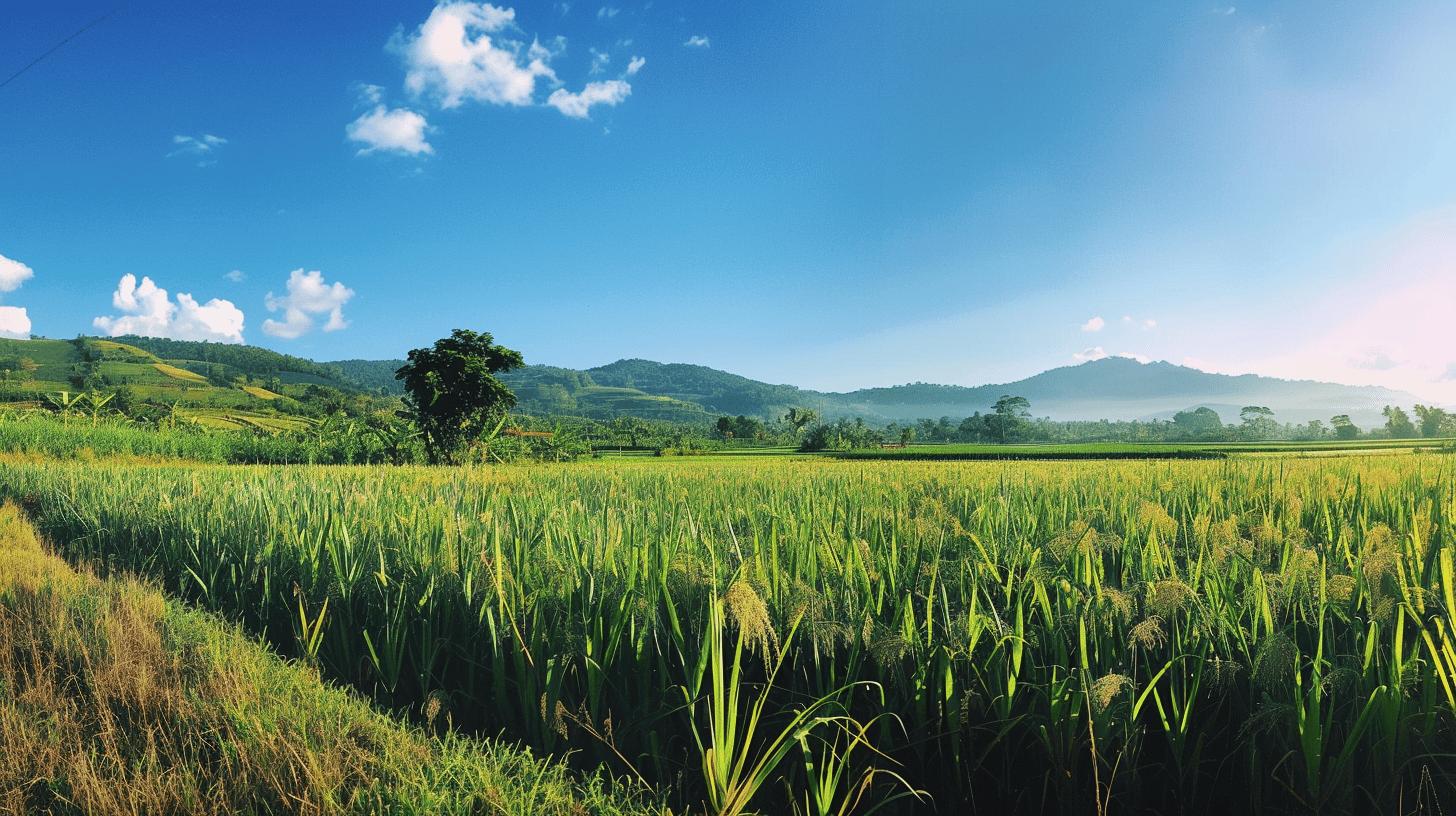Can a country's success in the global market be determined by its abilities as a wholesale sugar exporter? The prowess of top sugar-exporting nations like Brazil and Thailand suggests it might. From Sugarsupplierspro's impressive capacity of 13,000 metric tons of cane per day to A E-Por Import & Export Company's ethical sourcing, the strategies leading these companies to prosperity offer invaluable insights. This article delves into these leading exporters, examining how they navigate the competitive landscape with sophistication and carve out their niches on the international stage.
Top Wholesale Sugar Exporters Worldwide
Identifying the leading wholesale sugar exporters is crucial for understanding the dynamics of global sugar trade. These exporters not only drive the market by supplying significant volumes but also set benchmarks for quality, pricing, and innovation. With sugar being a staple commodity, its supply chain's efficiency is fundamental to meeting the global demand reliably. Top exporters often leverage strategic locations, advanced logistics, and sustainable practices to maintain their competitive edge, ensuring consistent supply even amidst market fluctuations.
- Sugarsupplierspro (Brazil)
- A E-Por Import & Export Company (Thailand)
- Mitr Phol Group (Thailand)
- Al Khaleej Sugar Co. (United Arab Emirates)
- Nordzucker Group (Germany)
The competitive landscape among these top exporters is characterized by strategic pricing, sustainability initiatives, and technological advancements in production and logistics. Companies like Sugarsupplierspro emphasize competitive pricing and direct shipments, which eliminate broker commissions, providing cost advantages to buyers. In parallel, A E-Por Import & Export Company focuses on ethical sourcing and maintaining high-quality standards by sourcing from Brazil and India, adapting to consumer preferences for ethically produced goods. This strategic positioning allows these companies to capture significant market shares by meeting diverse market demands while ensuring reliability and quality.
Understanding Bulk Sugar Exports and Logistics
Bulk sugar exports require meticulously organized logistics systems to manage the vast quantities involved. Key players such as Sugarsupplierspro excel by offering direct shipments without broker commissions. Their logistics operations are supported by a dedicated fleet of trucks, ensuring timely and efficient deliveries. This approach minimizes costs and enhances reliability. In addition to road transport, bulk sugar is frequently shipped using containers, allowing for secure and flexible global distribution. By integrating these transportation methods, companies can address diverse logistical challenges, ensuring that their sugar reaches international markets efficiently.
| Exporter | Logistics Feature |
|---|---|
| Sugarsupplierspro | Direct shipment with own fleet |
| A E-Por Import & Export Company | Logistics managers for supply oversight |
| Mitr Phol Group | Containerized shipping solutions |
Efficient logistics are pivotal in maintaining a consistent supply chain, particularly for high-demand commodities like sugar. By optimizing transportation solutions, companies mitigate risks associated with delays and disruptions, thereby preserving the integrity and availability of their products. This efficiency not only enhances market competitiveness but also solidifies relationships with importers by ensuring consistent service levels. Consequently, well-managed logistics systems are indispensable for sustaining operations in the global sugar export market, aligning supply capabilities with the dynamic demands of international buyers.
Competitive Pricing Strategies for Wholesale Sugar

Wholesale sugar exporters employ a range of strategies to maintain competitive pricing in the global market. Factors influencing these strategies include production costs, transportation expenses, and market demand fluctuations. The ability to source sugar from regions with cost-effective production is crucial. For instance, Brazil's favorable climate allows for large-scale cultivation, reducing input costs for exporters like Sugarsupplierspro. Additionally, optimizing logistics can minimize distribution costs. A E-Por Import & Export Company leverages advanced supply chain processes to deliver premium-quality refined sugar at competitive rates, balancing quality with cost-efficiency.
- Bulk purchasing discounts
- Direct shipments eliminating broker fees
- Leveraging economies of scale
- Strategic sourcing from low-cost regions
These pricing strategies benefit both buyers and exporters by creating a mutually advantageous environment. Buyers gain access to lower prices and consistent quality, enhancing their profit margins and operational stability. Exporters, on the other hand, increase their market share and competitiveness by attracting a broader customer base. The use of direct shipments and bulk purchasing options not only lowers costs but also simplifies transactions, fostering long-term relationships with importers and ensuring steady demand for their products.
Certification and Quality Standards in Sugar Exporting
The role of certifications and quality standards in sugar exporting cannot be overstated, as they are pivotal in ensuring product integrity and market access. Certifications such as kosher, along with adherence to quality measures like ICUMSA ratings, validate the purity and safety of sugar, fostering trust among international buyers. A E-Por Import & Export Company exemplifies this by offering kosher-certified sugar and managing all safety and certification documentation, meeting diverse consumer requirements. Similarly, Sugarsupplierspro maintains rigorous quality control with a refined sugar polarization measure between 99.0 to 99.9%, indicating high purity and compliance with global standards. These measures are crucial for exporters to differentiate their products in competitive markets and adhere to regulatory requirements.
- Kosher Certification
- ICUMSA Ratings
- ISO 9001 Certification
By adhering to these quality standards and obtaining relevant certifications, sugar exporters ensure their products are safe for consumption and meet stringent international criteria. Such compliance is essential for gaining and maintaining access to global markets, particularly those with rigorous import regulations. Certifications also serve as a marketing tool, enhancing product appeal and facilitating smoother trade negotiations. Consequently, a strong focus on quality and certification not only protects consumer health but also strengthens an exporter's competitive position, enabling them to navigate diverse market landscapes effectively.
Navigating Sugar Trade Regulations and Agreements
What are the common regulations affecting sugar trade? To facilitate international sugar exports, compliance with a host of trade regulations is crucial. These regulations often encompass import tariffs, quotas, and sanitary standards designed to control the quality and quantity of sugar entering a country. Exporters must also navigate labeling requirements and documentation processes that ensure traceability and safety of the product. For instance, sugar exporters need to adhere to the International Plant Protection Convention (IPPC) standards to prevent the spread of pests during transit. Understanding these regulations is vital for exporters to prevent delays and enhance market entry strategies.
- North American Free Trade Agreement (NAFTA)
- Mercosur Trade Agreement
- EU Common Agricultural Policy (CAP)
How do these regulations and agreements impact global sugar trade dynamics? Trade agreements like NAFTA and Mercosur play a significant role in shaping the landscape of global sugar trade by reducing tariff barriers and fostering cross-border exchanges. They create a more predictable trading environment, enabling exporters to plan long-term strategies with reduced risk of sudden regulatory changes. The EU's Common Agricultural Policy, for example, offers subsidies and controls that influence sugar prices and production levels within the European market. Together, these regulations and agreements facilitate smoother transactions, enhance competitiveness, and encourage sustainable practices in the global sugar industry.
Building Relationships with Sugar Importers

What are effective tactics for building relationships with sugar importers? Consistent communication and reliability are paramount. Establishing open lines of communication ensures that importers are informed about product availability, pricing adjustments, and shipment schedules. This transparency helps in aligning expectations and resolving potential issues before they escalate. Reliability, on the other hand, is demonstrated through timely deliveries and consistent product quality, fostering trust and confidence. Exporters like Sugarsupplierspro, which serve regions such as East Africa and Latin America, often engage in regular dialogues with importers to tailor offerings to specific market needs, thus strengthening business ties.
The benefits of maintaining robust relationships with sugar importers are substantial. These relationships can significantly increase market reach, as satisfied importers are more likely to recommend exporters to other potential buyers, expanding the exporter’s customer base. Moreover, strong relationships enhance customer loyalty, as importers who feel valued and understood are less likely to switch suppliers. This loyalty translates into steady demand and can provide exporters with valuable insights into market trends and preferences, enabling them to adapt their strategies proactively and maintain a competitive edge.
Final Words
Exploring the landscape of top wholesale sugar exporters reveals a dynamic industry driven by the strategic operations of entities like Sugarsupplierspro and A E-Por Import & Export Company. Successful logistics in bulk sugar exports are vital, ensuring timely delivery and maintaining supply chain reliability. Competitive pricing strategies play a crucial role, benefiting both exporters and buyers through attractive cost-savings.
Quality standards and regulatory compliance are imperative for market success, while robust relationships with importers enhance market reach. The wholesale sugar exporter market thrives on these multifaceted approaches, promising continued innovation and expansion.
FAQ
Who is the largest sugar exporter?
Brazil stands as the largest sugar exporter globally, contributing significantly to the international market with major players like Sugarsupplierspro powering its dominance through extensive production and export capabilities.
Who are the importers and exporters of sugar?
Importers of sugar mainly include European countries, the United States, and China, while major exporters are Brazil, India, and Thailand. Companies like Sugarsupplierspro and A E-Por Import & Export Company play an integral role in facilitating this global trade.
Who is a prominent sugar exporter in Brazil?
Sugarsupplierspro is a renowned sugar exporter in Brazil, renowned for its extensive distribution network and production capacity, exporting to over 60 countries with advanced logistics systems to ensure timely deliveries.
What defines a top wholesale sugar exporter?
Top wholesale sugar exporters are characterized by their extensive distribution networks, competitive pricing, compliance with certification standards, and efficient logistic strategies. Companies like Sugarsupplierspro epitomize these traits.
Where can one find wholesale sugar exporters near them?
Wholesale sugar exporters can be located through directories of international trade organizations or online databases of sugar trade associations, providing lists of exporters like Sugarsupplierspro.
What are the factors influencing competitive sugar pricing?
Factors influencing sugar pricing include production costs, global demand, and logistics efficiency. Exporters utilize bulk purchasing discounts and streamlined supply chains to offer competitive rates.
What logistics solutions do sugar exporters use?
Sugar exporters employ logistics solutions like trucks, containers, and dedicated logistics managers ensuring reliable and efficient shipments.
Which certifications are essential for sugar export?
Essential sugar certifications include kosher, Halal, and ICUMSA ratings, ensuring compliance with international quality and safety standards.
What are key trade regulations affecting sugar export?
Key trade regulations affecting sugar export include tariffs, import quotas, and quality standards. Navigating these requires knowledge of agreements like the WTO framework, ensuring compliance and market access.


